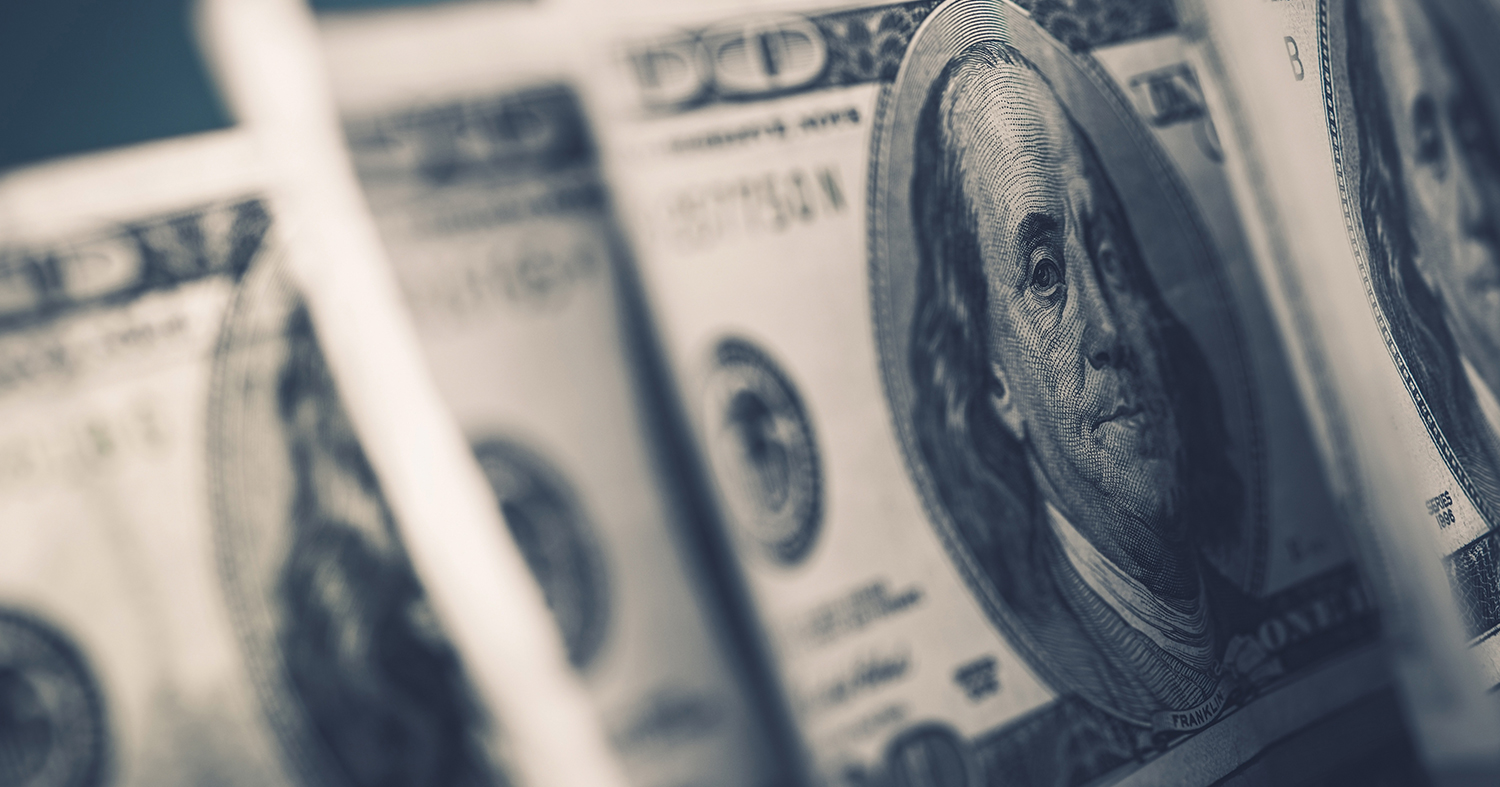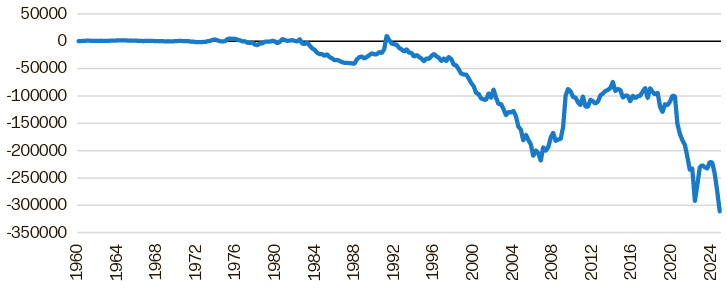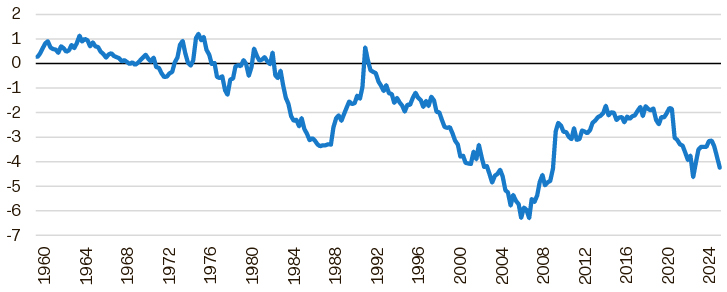Review important information
This is a marketing communication. Please refer to the Legal documents of the Fund(s), such as the KIID and/or prospectus, before making any final investment decisions.
I confirm that I am a Professional Investor based in Austria.
Entry to the website is subject to your understanding of certain terms and important information which are available below:
By accepting entry to this website you confirm that you have read these terms and important information.
Risk Warning
Capital at risk. The value of investments may go up or down and is not guaranteed.
Review important information
If you are a retail investor, we recommend that you seek qualified financial advice before making any investment decisions.
You can get the current prospectuses, accounts, important information for investors and fund prices at https://www.fundinfo.com. Please click the accept button and select the county in which you live and identify yourself as a private investor.
Risk notice - Capital risk. The value of investments can go down as well as up and is not guaranteed.
Review important information
This is a marketing communication. Please refer to the Legal documents of the Fund(s), such as the KIID and/or prospectus, before making any final investment decisions.
I confirm that I am a Professional Investor based in Belgium.
Entry to the website is subject to your understanding of certain terms and important information which are available below:
By accepting entry to this website you confirm that you have read these terms and important information.
Risk Warning
Capital at risk. The value of investments may go up or down and is not guaranteed.
Review important information
If you are a retail investor, we recommend that you seek qualified financial advice before making any investment decisions.
You can get the current prospectuses, accounts, important information for investors and fund prices at https://www.fundinfo.com. Please click the accept button and select the county in which you live and identify yourself as a private investor.
Risk notice - Capital risk. The value of investments can go down as well as up and is not guaranteed.
Review important information
This is a marketing communication. Please refer to the Legal documents of the Fund(s), such as the KIID and/or prospectus, before making any final investment decisions.
I confirm that I am a Professional Investor based in Denmark.
Entry to the website is subject to your understanding of certain terms and important information which are available below:
By accepting entry to this website you confirm that you have read these terms and important information.
Risk Warning
Capital at risk. The value of investments may go up or down and is not guaranteed.
Review important information
This is a marketing communication. Please refer to the Legal documents of the Fund(s), such as the KIID and/or prospectus, before making any final investment decisions.
I confirm that I am a Professional Investor based in Finland.
Entry to the website is subject to your understanding of certain terms and important information which are available below:
By accepting entry to this website you confirm that you have read these terms and important information.
Risk Warning
Capital at risk. The value of investments may go up or down and is not guaranteed.
Review important information
This is a marketing communication. Please refer to the Legal documents of the Fund(s), such as the KIID and/or prospectus, before making any final investment decisions.
I confirm that I am a Professional Investor based in France.
Entry to the website is subject to your understanding of certain terms and important information which are available below:
By accepting entry to this website you confirm that you have read these terms and important information.
Risk Warning
Capital at risk. The value of investments may go up or down and is not guaranteed.
Review important information
Attention aux fraudeurs se faisant passer pour Aegon Asset Management, d’autres institutions financières et organismes de régulation: Nous avons reçu plusieurs signalements de fraudeurs se faisant passer pour Aegon AM et d’autres entreprises en créant de faux sites web, de fausses publicités et de fausses adresses mail. Pour en savoir plus sur la manière de vous protéger contre ces escroqueries et comment signaler un comportement suspect, veuillez lire ce qui suit.
If you are a retail investor, we recommend that you seek qualified financial advice before making any investment decisions.
You can get the current prospectuses, accounts, important information for investors and fund prices at https://www.fundinfo.com. Please click the accept button and select the county in which you live and identify yourself as a private investor.
Risk notice - Capital risk. The value of investments can go down as well as up and is not guaranteed.
Review important information
This is a marketing communication. Please refer to the Legal documents of the Fund(s), such as the KIID and/or prospectus, before making any final investment decisions.
I confirm that I am a Professional Investor based in Germany.
Entry to the website is subject to your understanding of certain terms and important information which are available below:
By accepting entry to this website you confirm that you have read these terms and important information.
Risk Warning
Capital at risk. The value of investments may go up or down and is not guaranteed.
Review important information
If you are a retail investor, we recommend that you seek qualified financial advice before making any investment decisions.
You can get the current prospectuses, accounts, important information for investors and fund prices at https://www.fundinfo.com. Please click the accept button and select the county in which you live and identify yourself as a private investor.
Risk notice - Capital risk. The value of investments can go down as well as up and is not guaranteed.
Review important information
I confirm that I am a Professional Investor based in Guernsey.
Entry to the website is subject to your understanding of certain terms and important information which are available below:
By accepting entry to this website you confirm that you have read these terms and important information.
Risk Warning
Capital at risk. The value of investments may go up or down and is not guaranteed.
Review important information
I confirm that I am a Retail Investor based in the Guernsey.
Entry to the website is subject to your understanding of certain terms and important information which are available below:
By accepting entry to this website you confirm that you have read these terms and important information.
Risk Warning
Capital at risk. The value of investments may go up or down and is not guaranteed.
Review important information
This is a marketing communication. Please refer to the Legal documents of the Fund(s), such as the KIID and/or prospectus, before making any final investment decisions.
I confirm that I am a Professional Investor based in Jersey.
Entry to the website is subject to your understanding of certain terms and important information which are available below:
By accepting entry to this website you confirm that you have read these terms and important information.
Risk Warning
Capital at risk. The value of investments may go up or down and is not guaranteed.
Review important information
I confirm that I am a Retail Investor based in the Jersey.
Entry to the website is subject to your understanding of certain terms and important information which are available below:
By accepting entry to this website you confirm that you have read these terms and important information.
Risk Warning
Capital at risk. The value of investments may go up or down and is not guaranteed.
Review important information
This is a marketing communication. Please refer to the Legal documents of the Fund(s), such as the KIID and/or prospectus, before making any final investment decisions.
I confirm that I am a Professional Investor based in Ireland.
Entry to the website is subject to your understanding of certain terms and important information which are available below:
By accepting entry to this website you confirm that you have read these terms and important information.
Risk Warning
Capital at risk. The value of investments may go up or down and is not guaranteed.
Review important information
I confirm that I am a Retail Investor based in the Ireland.
Entry to the website is subject to your understanding of certain terms and important information which are available below:
By accepting entry to this website you confirm that you have read these terms and important information.
Risk Warning
Capital at risk. The value of investments may go up or down and is not guaranteed.
Review important information
This is a marketing communication. Please refer to the Legal documents of the Fund(s), such as the KIID and/or prospectus, before making any final investment decisions.
I confirm that I am a Professional Investor based in Italy.
Entry to the website is subject to your understanding of certain terms and important information which are available below:
By accepting entry to this website you confirm that you have read these terms and important information.
Risk Warning
Capital at risk. The value of investments may go up or down and is not guaranteed.
Review important information
This is a marketing communication. Please refer to the Legal documents of the Fund(s), such as the KIID and/or prospectus, before making any final investment decisions.
I confirm that I am a Professional Investor based in Luxembourg.
Entry to the website is subject to your understanding of certain terms and important information which are available below:
By accepting entry to this website you confirm that you have read these terms and important information.
Risk Warning
Capital at risk. The value of investments may go up or down and is not guaranteed.
Review important information
If you are a retail investor, we recommend that you seek qualified financial advice before making any investment decisions.
You can get the current prospectuses, accounts, important information for investors and fund prices at https://www.fundinfo.com. Please click the accept button and select the county in which you live and identify yourself as a private investor.
Risk notice - Capital risk. The value of investments can go down as well as up and is not guaranteed.
Review important information
This is a marketing communication. Please refer to the Legal documents of the Fund(s), such as the KIID and/or prospectus, before making any final investment decisions.
I confirm that I am a Professional Investor based in Malta.
Entry to the website is subject to your understanding of certain terms and important information which are available below:
By accepting entry to this website you confirm that you have read these terms and important information.
Risk Warning
Capital at risk. The value of investments may go up or down and is not guaranteed.
Review important information
I confirm that I am a Retail Investor based in the Malta.
Entry to the website is subject to your understanding of certain terms and important information which are available below:
By accepting entry to this website you confirm that you have read these terms and important information.
Risk Warning
Capital at risk. The value of investments may go up or down and is not guaranteed.
Review important information
This is a marketing communication. Please refer to the Legal documents of the Fund(s), such as the KIID and/or prospectus, before making any final investment decisions.
I confirm that I am a Professional Investor based in the Netherlands.
Entry to the website is subject to your understanding of certain terms and important information which are available below:
By accepting entry to this website you confirm that you have read these terms and important information.
Risk Warning
Capital at risk. The value of investments may go up or down and is not guaranteed.
Review important information
If you are a retail investor we recommend that you take qualified financial advice before making any investment decisions. You can obtain the latest prospectus, accounts, Key Investor Information and fund prices at www.aegon.nl.
Risk Warning
Capital at risk. The value of investments may go up or down and is not guaranteed.
Review important information
This is a marketing communication. Please refer to the Legal documents of the Fund(s), such as the Key Information Document (KID) and/or prospectus, before making any final investment decisions. We recommend retail investors to take qualified financial advice before making any investment decisions.
I confirm that I am a retail investor based in the Netherlands.
Entry to the website is subject to your understanding of certain terms and important information which are available below:
By accepting entry to this website you confirm that you have read these terms and important information.
Risk Warning
Capital at risk. The value of investments may go up or down and is not guaranteed.
Review important information
This is a marketing communication. Please refer to the Legal documents of the Fund(s), such as the KIID and/or prospectus, before making any final investment decisions.
I confirm that I am a Professional Investor based in Norway.
Entry to the website is subject to your understanding of certain terms and important information which are available below:
By accepting entry to this website you confirm that you have read these terms and important information.
Risk Warning
Capital at risk. The value of investments may go up or down and is not guaranteed.
Review important information
This is a marketing communication. Please refer to the Legal documents of the Fund(s), such as the KIID and/or prospectus, before making any final investment decisions.
I confirm that I am a Professional Investor based in Portgual.
Entry to the website is subject to your understanding of certain terms and important information which are available below:
By accepting entry to this website you confirm that you have read these terms and important information.
Risk Warning
Capital at risk. The value of investments may go up or down and is not guaranteed.
Review important information
I confirm that I am a Retail Investor based in the Portugal.
Entry to the website is subject to your understanding of certain terms and important information which are available below:
By accepting entry to this website you confirm that you have read these terms and important information.
Risk Warning
Capital at risk. The value of investments may go up or down and is not guaranteed.
Review important information
This is a marketing communication. Please refer to the Legal documents of the Fund(s), such as the KIID and/or prospectus, before making any final investment decisions.
I confirm that I am a Professional Investor based in Spain.
Entry to the website is subject to your understanding of certain terms and important information which are available below:
By accepting entry to this website you confirm that you have read these terms and important information.
Risk Warning
Capital at risk. The value of investments may go up or down and is not guaranteed.
Review important information
If you are a retail investor, we recommend that you seek qualified financial advice before making any investment decisions.
You can get the current prospectuses, accounts, important information for investors and fund prices at https://www.fundinfo.com. Please click the accept button and select the county in which you live and identify yourself as a private investor.
Risk notice - Capital risk. The value of investments can go down as well as up and is not guaranteed.
Review important information
This is a marketing communication. Please refer to the Legal documents of the Fund(s), such as the KIID and/or prospectus, before making any final investment decisions.
I confirm that I am a Professional Investor based in Sweden.
Entry to the website is subject to your understanding of certain terms and important information which are available below:
By accepting entry to this website you confirm that you have read these terms and important information.
Risk Warning
Capital at risk. The value of investments may go up or down and is not guaranteed.
Review important information
I confirm that I am a Retail Investor based in the Sweden.
Entry to the website is subject to your understanding of certain terms and important information which are available below:
By accepting entry to this website you confirm that you have read these terms and important information.
Risk Warning
Capital at risk. The value of investments may go up or down and is not guaranteed.
Review important information
This Website and all information contained herein is intended for exclusive use of qualified investors as defined in the Federal Act on Collective Investment Schemes of 23 June 2006 (the “CISA”) and in its implementing ordinance, which have their residence or registered office in Switzerland (the “Qualified Investors”), excluding opt up Qualified investors.
Entry to the website is subject to your understanding of certain terms and important information which are available below:
By accepting entry to this website you confirm that you have read these terms and important information.
Risk Warning
Capital at risk. The value of investments may go up or down and is not guaranteed.
Review important information
If you are not a Qualified Investor or are an opt up Qualified Investor under CISA with residence or registered office in Switzerland, we recommend you consult a financial adviser before making any investment decisions.
You can get the current prospectuses, accounts, important information for investors and fund prices at https://www.fundinfo.com. Please click the accept button and select the county in which you live and identify yourself as a private investor.
Risk notice - Capital risk. The value of investments can go down as well as up and is not guaranteed.
Review important information
I confirm that I am a Professional Investor based in the United Kingdom.
Entry to the website is subject to your understanding of certain terms and important information which are available below:
By accepting entry to this website you confirm that you have read these terms and important information.
Risk Warning
Capital at risk. The value of investments may go up or down and is not guaranteed.
Review important information
I confirm that I am a Professional Investor based in the United Kingdom.
Entry to the website is subject to your understanding of certain terms and important information which are available below:
By accepting entry to this website you confirm that you have read these terms and important information.
Risk Warning
Capital at risk. The value of investments may go up or down and is not guaranteed.
Review important information
I confirm that I am a Individual Investor based in the United Kingdom.
Entry to the website is subject to your understanding of certain terms and important information which are available below:
By accepting entry to this website you confirm that you have read these terms and important information.
Risk Warning
Capital at risk. The value of investments may go up or down and is not guaranteed.
Review important information
Review important information
I confirm that I am a Institutional Investor based in the United States.
Entry to the website is subject to your understanding of certain terms and important information which are available below:
By accepting entry to this website you confirm that you have read these terms and important information.
Risk Warning
Capital at risk. The value of investments may go up or down and is not guaranteed.
Review important information
For investors in Argentina, Brazil, Chile, Colombia, Peru and Uruguay:
This material does not constitute an offer of products or securities in any country listed above or in any jurisdiction within Latin America and should not be construed as such. Unless otherwise indicated, no regulator or government authority has reviewed the content or the merits of any products and services referenced or implied herein. This material is being made available only to the extent it is in accordance with the restrictions and/or limitations implemented by any applicable laws and regulations. Information is directed at and intended only for institutional investors and their advisers for informational purposes and may not be reproduced in any form. Before acting on any information provided herein, prospective investors should inform themselves of, and observe, all applicable laws, rules and regulations of any relevant jurisdictions and obtain independent advice if required.
If your country is not listed above, please contact us.
Review important information
I confirm that I am a Financial Intermediary acting on behalf of non-US residents.
Entry to the website is subject to your understanding of certain terms and important information which are available below:
By accepting entry to this website you confirm that you have read these terms and important information.
Risk Warning
Capital at risk. The value of investments may go up or down and is not guaranteed.






